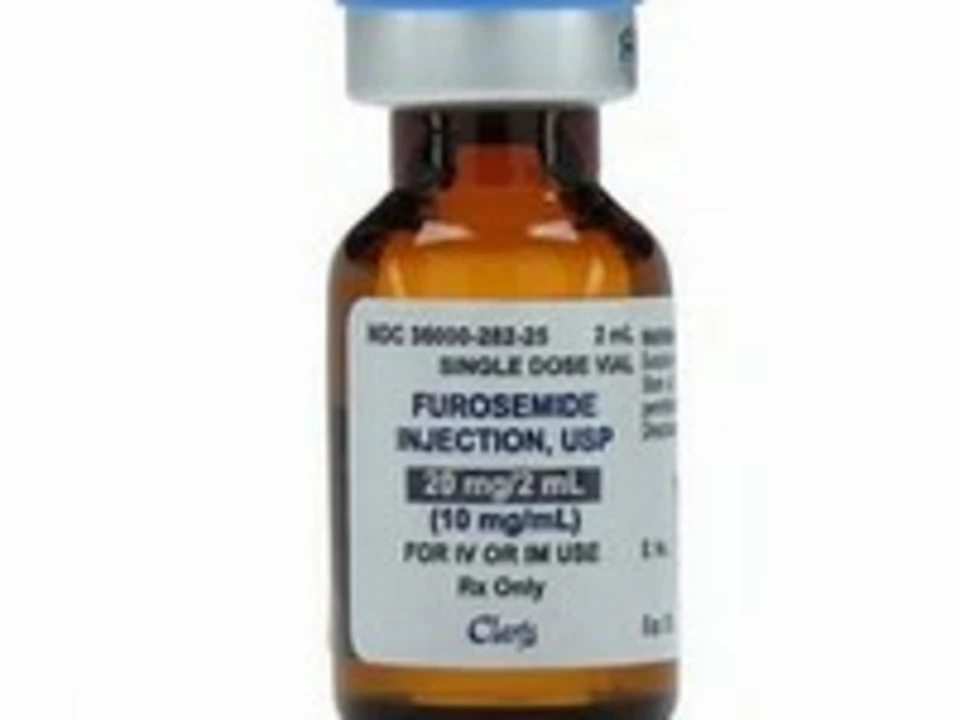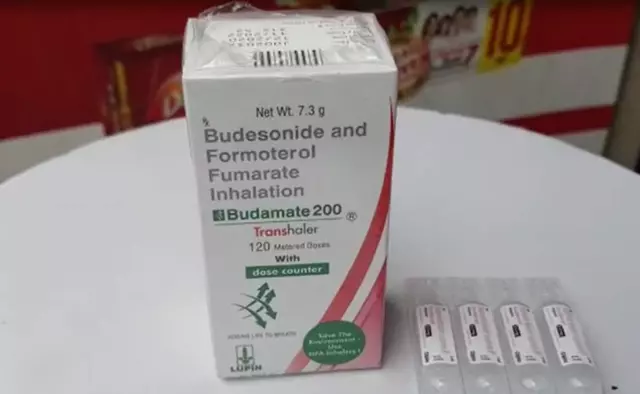Understanding Ketorolac and Its Uses
Ketorolac is a nonsteroidal anti-inflammatory drug (NSAID) that is commonly prescribed for short-term pain relief. It works by reducing inflammation and pain in the body, making it an effective treatment for conditions such as post-operative pain, arthritis, and migraines. As with any medication, it's crucial to store and dispose of Ketorolac safely to prevent accidents and ensure its effectiveness.
Proper Storage of Ketorolac
Storing Ketorolac correctly is essential to maintain its potency and prevent accidental ingestion by children or pets. Follow these guidelines to ensure that your medication remains effective and safe:
- Keep Ketorolac in its original container: The container is designed to protect the medication from light, moisture, and heat. Transferring it to another container may compromise its stability and effectiveness.
- Store at room temperature: Ketorolac should be stored at room temperature, away from heat, moisture, and direct sunlight. Avoid storing it in the bathroom or near heat sources, as these can cause the medication to break down.
- Keep out of reach of children and pets: To prevent accidental ingestion, store Ketorolac in a high, locked cabinet or a medicine lockbox. Teach children about the dangers of consuming medications that are not prescribed for them.
- Monitor expiration dates: Check the expiration date on the Ketorolac container regularly and dispose of any expired medication safely. Expired medications may lose their effectiveness and can even be harmful.
Safely Disposing of Unused or Expired Ketorolac
Proper disposal of unused or expired Ketorolac is crucial to prevent accidental ingestion and environmental harm. Follow these steps to dispose of your medication safely and responsibly:
- Do not flush down the toilet: Flushing medications down the toilet can lead to water pollution and harm aquatic life. Instead, opt for one of the following disposal methods.
- Participate in a drug take-back program: Many communities have drug take-back programs that allow you to safely dispose of unused or expired medications. Check with your local pharmacy, healthcare provider, or waste management facility for information on these programs.
- Dispose in household trash: If a drug take-back program is not available, you can dispose of Ketorolac in your household trash. Follow these steps:
- Remove the medication from its original container and mix it with an undesirable substance, such as used coffee grounds or kitty litter, to discourage consumption by children or pets.
- Place the mixture in a sealed plastic bag or other container to prevent leakage.
- Throw the container in your household trash.
- Remove any personal information from the empty Ketorolac container and dispose of it separately.
Recognizing and Handling Accidental Ingestion
If you suspect that a child or pet has accidentally ingested Ketorolac, it's essential to act quickly and seek medical assistance. Signs of Ketorolac overdose include:
- Nausea
- Vomiting
- Stomach pain
- Drowsiness
- Dizziness
- Headache
- Seizures
- Difficulty breathing
If you notice any of these symptoms, call your local poison control center or emergency medical services immediately. Do not attempt to induce vomiting or give any medications without consulting a healthcare professional.
Preventing Accidental Ingestion and Misuse
Preventing accidental ingestion and misuse of Ketorolac begins with proper storage and disposal, as outlined in previous sections. In addition to these measures, consider the following tips to keep your medication safe and secure:
- Always take your medication as prescribed: Do not take more than the recommended dose or use Ketorolac for longer than prescribed. Misuse can lead to serious side effects and addiction.
- Communicate with family members: Inform family members about the importance of safe medication storage and disposal. Encourage open communication about any concerns or questions related to your medication.
- Keep track of your medication: Regularly monitor your Ketorolac supply to ensure that it is not being misused or accidentally ingested.
- Seek professional help if needed: If you are struggling to manage your pain or are concerned about potential misuse of Ketorolac, consult your healthcare provider for guidance and support.
Staying Informed and Vigilant
Storing and disposing of Ketorolac safely is an important responsibility for anyone who has been prescribed this medication. By following the guidelines outlined in this article, you can help protect yourself, your family, and the environment from the risks associated with improper storage and disposal. Stay informed and vigilant to ensure the safety and effectiveness of your medication.








7 Comments
Jose Lamont May 31, 2023
I've been storing my ketorolac in the medicine cabinet like they said, but I never thought about mixing it with coffee grounds before. Just did it today-seems like a weirdly satisfying way to make sure no one's stealing my pain meds. 🤷♂️
Ruth Gopen June 1, 2023
I cannot believe how casually people treat medications like this! This is a PUBLIC HEALTH CRISIS waiting to happen! I have personally witnessed a toddler ingest an entire bottle of ibuprofen-do you know what that does to a liver?!? Please, for the love of all that is holy, LOCK IT UP. And if you're just tossing it in the trash like it's a candy wrapper-YOU ARE A MENACE TO SOCIETY.
Nick Bercel June 3, 2023
I always just flush it... until last year, my neighbor's dog died after eating some pills from the trash. Now I mix mine with cat litter and bury it in the backyard. Yeah, I know, it's a little extra, but my dog's still alive, so... win?
Alex Hughes June 5, 2023
The real issue here isn't just storage or disposal-it's the entire pharmaceutical industrial complex that pushes potent NSAIDs like ketorolac as first-line solutions for chronic pain without addressing root causes or offering sustainable alternatives. We're treating symptoms while ignoring systemic failures in healthcare access, mental health support, and preventive care. It's easier to tell someone to lock up their pills than to fix the fact that millions live in pain because they can't afford physical therapy or acupuncture or even a decent mattress. But hey, at least we've got disposal guidelines.
Hubert vélo June 5, 2023
You know who really benefits from these 'safe disposal' guidelines? The government. They don't want you flushing pills because they're tracking pharmaceutical waste to push biometric ID systems for controlled substances. Next thing you know, your medicine cabinet will be联网 with the DEA. And don't even get me started on the coffee grounds trick-it's a cover for chemical tagging. They're putting microchips in your kitty litter now. I saw it on a forum.
Kalidas Saha June 6, 2023
I just threw mine in the river 😭💔 My dog was so sad when I told him it was gone... he licked the trash can for 2 hours... 😭😭😭 #KetorolacGrief #PainIsReal
Marcus Strömberg June 7, 2023
The fact that you need a guide to dispose of a NSAID properly is a testament to the intellectual decline of the American public. If you can't be trusted to store a pill bottle responsibly, you shouldn't be prescribed one in the first place. This isn't a parenting manual-it's a medical document. And if you're mixing it with coffee grounds? That's not disposal, that's a culinary experiment gone wrong. Use a take-back program or don't take the medication. Simple.